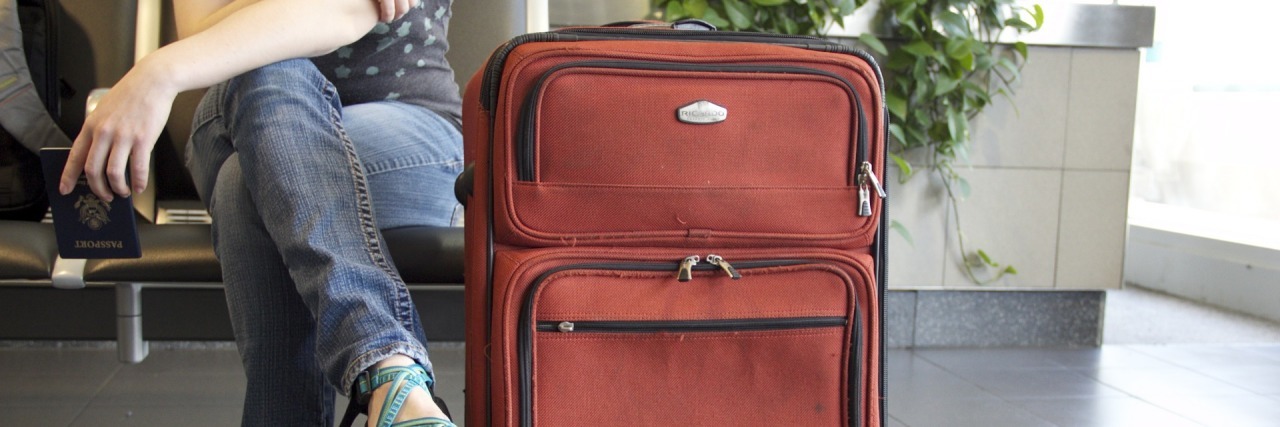It was 7:30 a.m., and I was one of many patients waiting for the Day Surgery Unit of the local cancer hospital to open its doors. The last time I had been here was almost six years ago, and today I was probably the only one to walk out again without surgery.
About a month ago I was diagnosed with a local recurrence of the first breast cancer and agreed to a unilateral mastectomy without reconstruction. It had all started so well. I was the first patient on the list. I had great rapport with the surgical, nursing teams and the anesthetist. I was focused, composed and ready to go. I even got marked up on my chest to show where and how my breast was to be removed.
I spoke with the anesthetist and answered many of the questions I had been asked so many times before including, “Do you have any allergies?” I will never grumble again about being asked the same questions by more than one person. Now I know some answers mean different things to different people. This time when I mentioned chronic urticaria (a skin condition), it seemed to set off alarm bells. I was asked for more information about how and when I developed it. I explained that it all started seven months ago after I received treatment for chicken pox. There were no diagnostic tests to identify the underlying triggers for my skin condition, so the surgical team felt going ahead with the anesthetics might be risky.
What if I developed an allergic response to the anesthetics? One of the possible triggers for urticaria can be medication that causes a histamine release. Some effects include developing a toxic shock or breathing difficulties. We decided to err on the side of caution and most importantly, to follow the guidelines of the Royal College of Anaesthetists (I am based in the United Kingdom). I have to get the relevant allergy tests done and see the results before we can reconsider surgery.
You might be wondering, “Why now? How did it come to this? Who is to blame?”
Perhaps more tests should have been done when I was first diagnosed by a dermatologist. I had been pushing for allergy tests because I was concerned about any underlying immune system issues. But then again, the urticaria had settled down. I also needed to prioritize the cancer treatment. Perhaps there was a lack of linked up thinking, or perhaps someone dropped the ball somewhere. Everyone was under immense pressure. Perhaps that’s not an excuse, but that’s the reality. We all are trying our best.
The hospital staff on my anticipated surgery date had been most sensitive, caring and supportive. It was not an easy decision for any of us. But I am thankful we discussed it in detail. Of course, I was frustrated, angry and tired. There was so much emotional strain on me and those around me. I had made so many decisions. On the day of my scheduled unilateral mastectomy, I returned home with both breasts intact. One of them continues to have a local cancer recurrence, a grade 2 tumor. I could, but I am not freaking out about it. I am not in denial about the severity of my situation, I know it needs to be sorted out quickly and I need to make it happen. Thankfully, because of the nature of the tumor, my surgery is currently not life-saving. But that could change.
Things were meant to get easier, not more complex, complicated and drawn out. But through this experience, I have learned a lot and been reminded of some important things.
- I must never assume others know everything they need to know just because I have said it before, or written it down somewhere.
- Even with cancer, or any other major illness, I must not take my eyes off the health of the rest of my body.
- I must never make assumptions about what others should know or do on my behalf. I need to research, ask, check and double check.
- I must never get tired when several people ask me the same questions. Often it is a back-up and safety approach to catch mistakes and oversights.
So, for now, I have decided to focus on re-establishing some kind of normality. I know for the sake of my well-being, I need to stay calm and preserve my energy until the operation can go ahead safely.
Photo credit: Katie Veldhorst

